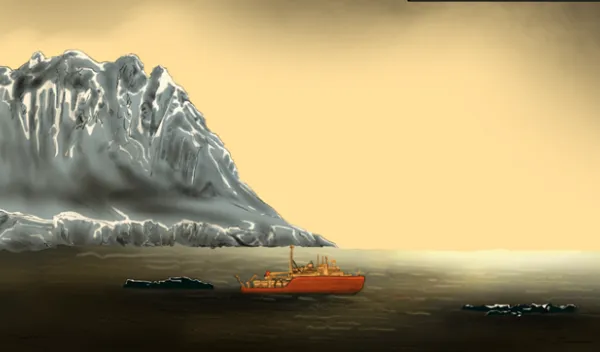
Climate change may be culprit in Antarctic fish disease outbreak
Climate change might be behind an unusual disease outbreak among Antarctic fish, researchers are finding. For a decade, University of Oregon biologists John Postlethwait and Thomas Desvignes have been visiting the West Antarctic Peninsula. They study a unique group of fish that has adapted to the harsh polar environment. But on a 2018 field excursion, they noticed something strange: many of the fish were afflicted with grotesque skin tumors.
Collaborating with virologists and pathologists, they determined that the tumors were the result of a parasitic illness, an outbreak on a scale never seen near Antarctica. Warming waters and melting ice might have contributed to the outbreak in this particularly vulnerable ecosystem, the U.S. National Science Foundation-supported scientists report in iScience.
"When life conditions become challenging, animals become more prone to disease," said Thomas Desvignes, lead author of the study.
Most fish that swim through the frigid waters near Antarctica are part of a group called notothenioids, or icefish. Notothenioids have evolved unique adaptations to their icy environment, including specialized proteins that prevent their blood from freezing.
During the 2018 field season, the biologists visited a small fjord on the West Antarctic Peninsula that's usually filled with ice at that time of year. Finding it clear, they ventured in and began fishing. "As soon as we got the first trawl back on deck, we realized that one species was abundant, and a lot of them had big tumors," Desvignes said.
He and his collaborators collected samples from both diseased and healthy fish and brought them back to Oregon. Despite years of fishing around Antarctica, the researchers hadn't seen disease on that scale. Neither had many other Antarctic fish biologists familiar with the area.
In the lab, the scientists analyzed the tumors. The diagnosis: X-cell disease, a poorly understood parasitic illness. It's been reported sporadically in wild fisheries in Iceland and Norway, but scientists don't know how it's transmitted.
Warming waters and shifting ecosystems could be putting pressure on the fish, making them more vulnerable to disease, Desvignes suggested.
"This study is evidence of how much there is to discover in Antarctica," said Maria Vernet, a program director in NSF's Office of Polar Programs. "Although notothenioids are the most studied fishes in the region due to their evolutionary adaptations, sampling in a new location has provided a completely new picture of fish parasitism."
